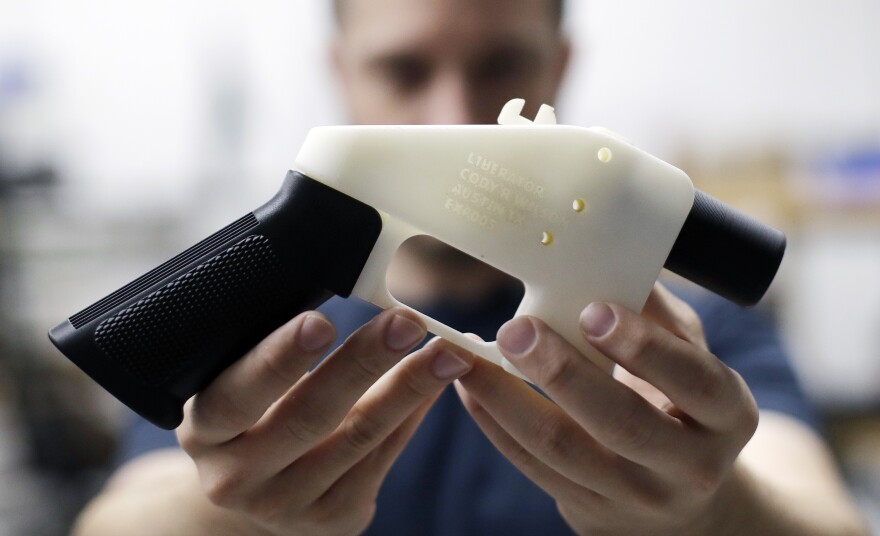Plans to upload blueprints to the internet for 3D-printed guns are on hold as lawsuits crop up around the country seeking to control their distribution — and as with any new technology, the law is playing catch-up.
A federal judge issued a temporary restraining order last week that prevents the publication of blueprints for the guns, which are plastic. The federal judge said the guns could end up in the wrong hands because they don't have serial numbers and can be printed from directions from the internet, The Associated Press reported.
The ruling came after eight states and the District of Columbia filed a lawsuit to block a government settlement with Cody Wilson and his Austin-based company, Defense Distributed, which made it legal for the company to make the computer plans available to paying customers, NPR reported.
The government agreed to a settlement with Wilson in June after a legal battle had forced him to remove the online tutorials. The government argued the tutorials violated firearm export laws. Wilson has argued they're protected under the First and Second Amendments.
Lewis Wasserman, a professor of criminology and criminal justice at the University of Texas at Arlington, also says they're likely protected under these amendments.
"You should be very concerned about this case because the limitations on expression — even expression we don't like — harms us all," he said.
He joined KERA to weigh in on the legal challenges of keeping up with the cutting edge of technology.
Interview Highlights
On the current legality of 3D-printed guns
A 3D-printed gun itself, that is, possession of the gun, is legal. So, if you were at home, you had a 3D-printed gun and you kept it for protection of your home, as long as it had a metal piece inserted, which would allow it's detection in an airport or in other places that are secure, the gun would be legal.
On what's behind the current multi-state lawsuit
What it means is that, right now, the uploading of these plans for 3D-printed guns is on hold. That is, a federal judge has issued a temporary restraining order, which is a kind of injunction, so that Defense Distributed cannot upload and keep these items on the internet for transmission to sites that have 3D printers.
On 3D-printed guns being protected by the First and Second amendments
I think they are. And I think one of the difficulties with the government's case is the First Amendment. And I think whether you're a distributor of online material or whether you're a public broadcaster or whether you're a television reporter or a newspaper reporter, you should be very concerned about this case because the limitations on expression — even expression we don't like — harms us all. If we are to maintain a democracy, maintain fluidity of information, then we should be very skeptical about preventing communications, especially in a case like this.
What is going to be the marginal benefit of preventing the uploading of these 3D blueprints? I suggest that it's going to be minimal. The technology is so widespread, distributed throughout the world already. So, the benefit in balancing the interests of the government and protecting the public versus the extremely important aspect of freedom of speech seems to me to go decidedly in favor of freedom of speech.
Interview responses have been edited for clarity and length.






